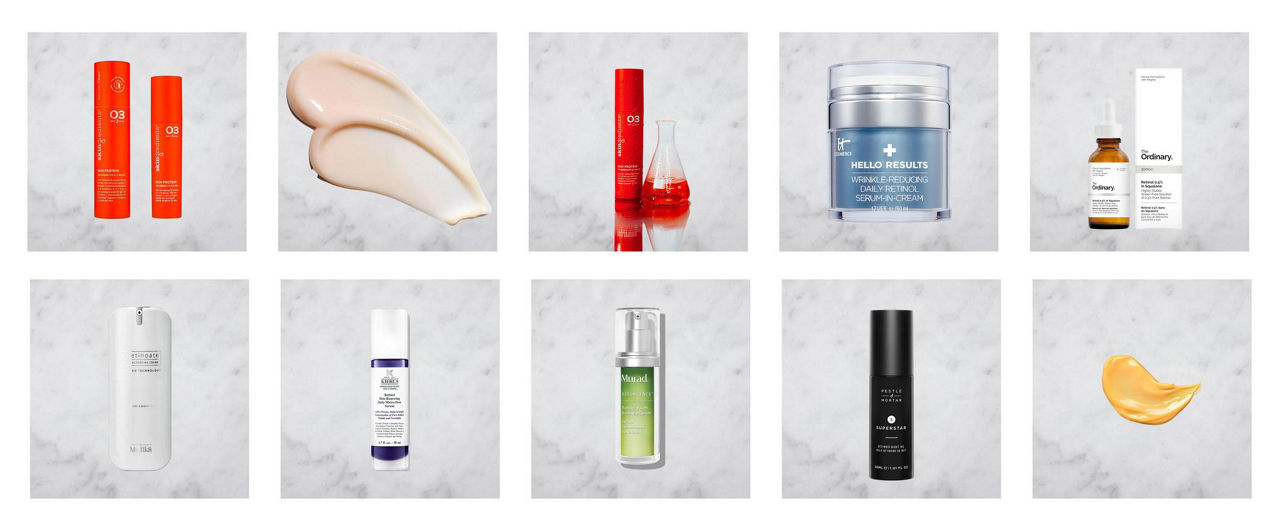Your Shopping Bag is Empty
Frequently Asked Beauty Questions
Retinol Edition
When it comes to the landscape of beauty and skincare, things are always changing. No matter how informed we try to be, sometimes we still have burning questions. In this series, we will try to answer those questions as best we can. Starting with everything you need to know about the holy-grail ingredient, retinol!
What does retinol do?
Retinol is quite the cult ingredient and for good reason! Retinol does a number of things, including promoting collagen production, fighting acne and encouraging cell turnover. With regular use, the result is plumped, smoothed skin. Retinol can reduce acne, fine lines, wrinkles and even hyperpigmentation over time.
What are the types of retinol?
You might see products with different ingredients like retinol, retinoid, retinal, retinoate or even retinyl palmitate. All of these products are derivatives of Vitamin A, just with a slightly different molecular structure. This means that they do the same thing, but at different rates.
What strength retinol should I be using?
The first thing to know about retinol is that there are a lot of different types and strengths on the market.
Retinol can be irritating to your skin, too, so it’s important to start off slow.
For beginners, we recommend searching for 0.01% to 0.03% retinols to start with. It’s important to integrate
retinol slowly into your routine if you’ve never used it before, starting with two times per week and slowly
increasing your usage.
Try: Medik8’s Crystal Retinal 3
For intermediate retinol-users, we recommend anywhere from 0.03% to 0.3%. Around 0.2% retinol tends to be ideal.
When moving to a stronger retinol, start by using it every second night, building up your usage if your skin
responds well.
Try: The Ordinary’s Retinol 0.2% in Squalane
Finally, for retinol-experts, those who are ready for the big leagues, you can reach for anything from 0.3% to
1%.
Try: Sunday Riley’s A+ High-Dose Retinoid Serum
How should I use retinol?
Have you heard of the sandwiching technique? Popularised by TikTok and backed by dermatologists all over the world, this technique refers to ‘sandwiching’ your retinol between two layers of moisturiser. We recommend starting with a hydrating serum or lightweight moisturiser, applying it to damp skin. Once that’s completely absorbed, you can go in with your retinol. Remember, a little goes a long way with retinol! Experts recommend using a pea-sized amount, applying your retinol of choice in a thin layer all over the face, avoiding sensitive areas around your mouth, nose and eyes. After that, too, has absorbed, follow up with another moisturiser. We sometimes prefer a thicker night cream at this stage.
When should I use retinol?
Retinol should be used only at night. As always, you should apply a broad spectrum SPF every morning, but this is
especially important when using retinol as it can make your skin more sensitive to UV rays.
If you’re starting out using retinol for the first time ever, we recommend applying it twice a week to start off
with, or every three days. If your skin responds well, after about 2 weeks you can increase to once every two
days. Once you’ve been using your retinol of choice for a month with no irritation, you can increase your usage
again to once nightly.
What age should I start using retinol?
Most experts recommend incorporating retinol into your routine in your mid-twenties. Elastin and collagen production starts to slow down once we get to 25, so this is a good benchmark to start thinking about age-defying retinol serums to help you keep your youthful glow.
How quickly does retinol work?
When it comes to retinol usage, it pays to be patient. It can be easy to get discouraged when you don’t see
results overnight, but anti-ageing is a long game. Depending on the person and the strength of retinol used, it
can take anywhere from six weeks to three months to begin to see visible differences.
The longer you use it, the greater the benefits for your skin. After six months, users typically see a
noticeable reduction in fine lines, dark spots and wrinkles, as with time retinol can actually boost new
collagen and elastin production.
Who can and can't use retinol?
All ages can use retinol serums, as its anti-acne effects can be helpful for teens and its anti-ageing effects will appeal to those 25 and over.
It’s not recommended to use retinols if you are pregnant or breastfeeding. If you have especially sensitive or dry skin you should also be extra careful if thinking of using a retinol as they can be irritating and drying for the skin.
What can I use instead of retinol?
Intrigued by the anti-ageing properties of retinol but not sure if it’s for you? We recommend reaching for the following ingredients instead in that case: collagen, caffeine, vitamin C, peptides, co-enzyme Q10, niacinamide and enzymes.
